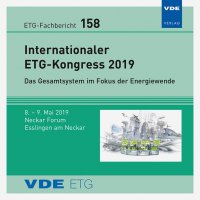On the Resilience of Secondary Frequency Control
Konferenz: Internationaler ETG-Kongress 2019 - ETG-Fachtagung
08.05.2019 - 09.05.2019 in Esslingen am Neckar, Deutschland
Tagungsband: Internationaler ETG-Kongress 2019
Seiten: 5Sprache: EnglischTyp: PDF
Persönliche VDE-Mitglieder erhalten auf diesen Artikel 10% Rabatt
Autoren:
Boerner, Johannes; Steinke, Florian (FG EINS, TU Darmstadt, Germany)
Inhalt:
Secondary frequency control in electrical grids is essential for power system stability. In this paper, we examine how different algorithms for this task react to system disturbances of increasing strength. Specifically, we simulate detected and undetected outages of generators and their control systems, through physical damage or cyber-attacks. We compare a classic central PI-controller for secondary control with a decentral implementation that we have recently proposed. We simulate a power grid with 129 generators and n-1 safe communication topology. We find that for detected generator faults, both central and decentral control achieve frequency deviation zero eventually. For undeteced generator faults, central control is also able to restore the frequency, while the decentral version shows remaining frequency deviations, whose size is increasing with attack strength. The central controller’s advantage is, however, offset by the fact that an outage of the central node (e.g. by hacking) leads to complete blackout in this control setting. The decentral control scheme is thus more resilient on average.


